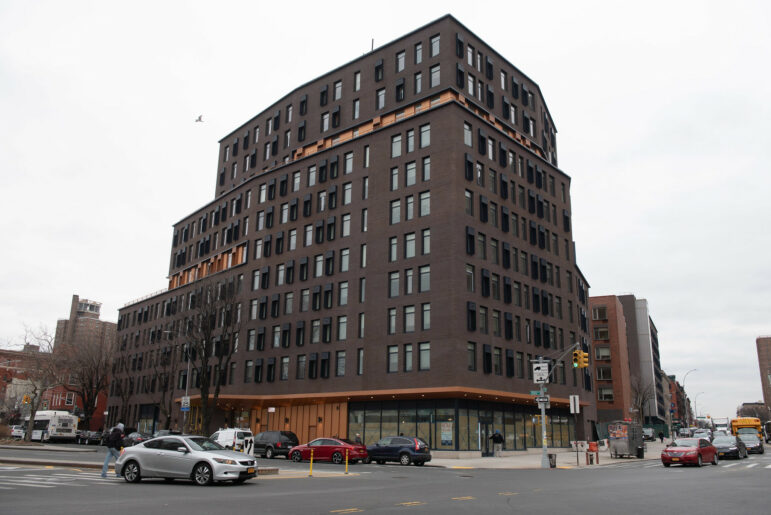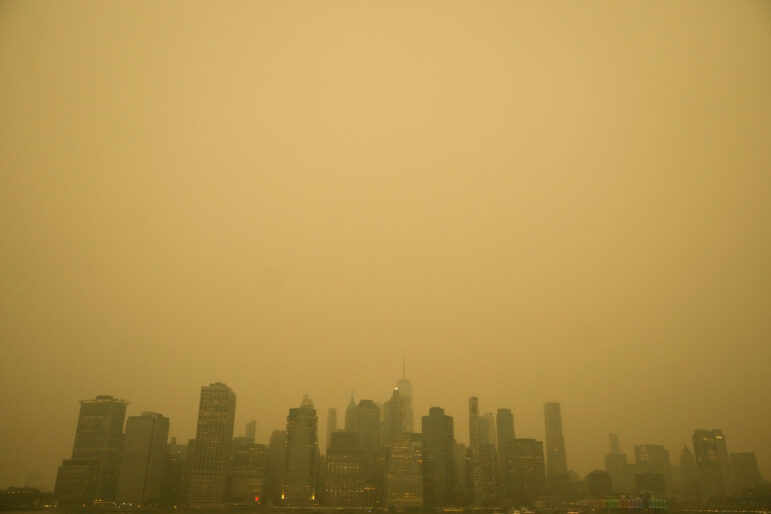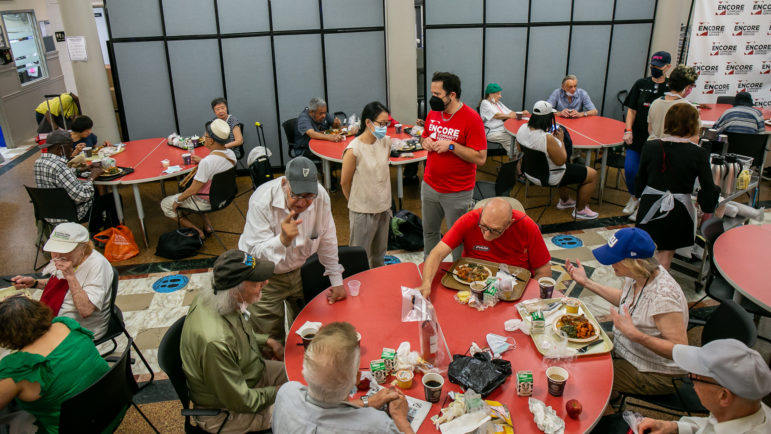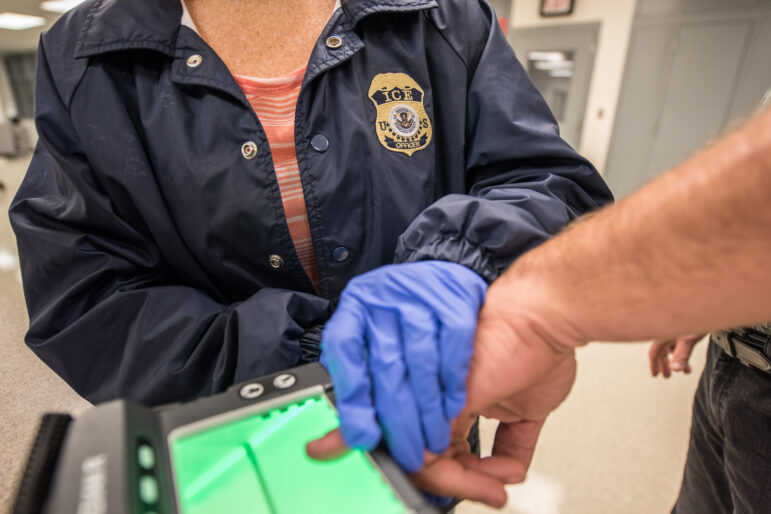A report by Make the Road New York titled “Home Court Advantage: How Landlords Are Winning and Tenants Are Losing at Brooklyn Housing Court,” claims that 85 percent of landlords are represented in court while almost about 95 percent of tenants are not.
With a couple of police officers looking on from in front of Brooklyn Housing Court at 141 Livingston Street, members of the Brooklyn Tenants Union chanted “Si se Puede” (“Yes we can”) at a rally on Wednesday.
Brooklyn Tenants United is a coalition of tenants, community organizations and legal services providers that includes community organizations such as the Flatbush Tenant Coalition, South Brooklyn Legal Services, the Bushwick Housing Independence Project, Housing Court Answers and 32 BJ.
The report found problems with the physical environment in court, a lack of information, and a need for respect and impartiality. According to the report tenants with limited English proficiency, disabilities, and those who must bring small children with them to court face challenges because they can’t be accommodated, don’t have anyone to translate or find no childcare services provided.
“Those who pay rent don’t need any more injustices,” said MRNY board member and Environmental Justice and Housing Project Leader, Gladys Puglla. “Things are as hard as it is in this city. We’re going to keep fighting until we get the same equal rights we deserve.”
With Councilmembers Leticia James and Diana Reyna and Assembly member Hakeem Jeffries present, the press conference included first hand testimonies from local tenants who discussed how they’ve been treated during their attempts to seek help from the housing court. One tenant said a case with her landlord, in which he claimed she owed him money, lasted five years. Because of her lack of English proficiency, communicating with the judge and lawyers was not as simple as it was for her landlord.
“This is an important matter,” said District Leader Weyman A. Carey, who joined forces with 32BJ at the rally. “People are constantly harassed in this establishment and they don’t get what they deserve, instead they are brushed aside.”
Brooklyn Housing Court has a comments and complains section on its website, but according to Brooklyn Tenants United members, hasn’t done much to address those complaints.
James called for changes including seating for senior citizens, facilities for tenants to meet with their lawyers in private, good lawyers and childcare facilities.
“This building favors landlords,” said James. “People should be able to live with dignity and respect. We need to balance the scale so that tenants have a voice in this building.”
The Rent Stabilization Association, the largest real estate industry trade association in New York, didn’t dispute the complaints about housing court. In fact, he suggested tenants’ housing court adversaries, the landlords, are also poorly served by the system.
“Tenants have a legitimate reason to be upset, but regular owners have the same complaints,” stated Frank Ricci, Director of Government Affairs at the RSA, which represents over 25,000 property owners and agents. “I don’t think owners like to go to the housing court either.”








